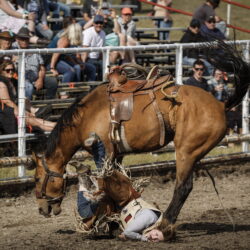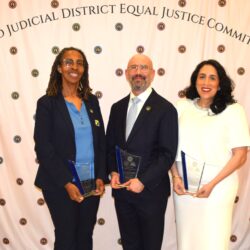
Brooklyn D.A. Withholds Names of Orthodox Sex-Crime Suspects
Says Confidentiality Is Essential in Working with Orthodox Jewish Communities
By Deepti Hajela
Associated Press
BROOKLYN — District Attorney Charles Hynes' office says its program for dealing with sex crimes in Brooklyn's Orthodox Jewish communities is working.
In 2009, the D.A. set up a hotline that promised sex-crime victims anonymity — and also shielded the identity of many suspects. In such small insular communities, revealing the names of defendants could lead to identifying their victims, the D.A.'s office has said.
Some have criticized that presumption, however.
"It's not that small, it's not that close-knit," said Michael Lesher, an Orthodox writer and attorney who has been involved in cases dealing with sex abuse issues. "I can't believe the Orthodox community is so unique in that respect that it deserves this preferential treatment for the perpetrators."
Various media outlets had filed Freedom of Information requests to get the names, after the Brooklyn D.A. said late last year that 85 people had been arrested since the hotline had opened in 2009. In a letter to staff writer Paul Berger at The Jewish Daily Forward last week, the D.A.'s office said there was a "significant danger" that revealing the defendants would disclose the victims in such a tight-knit and insular community. Most of the city's Orthodox Jews live in Brooklyn.
"Once identified, the sex crime victims will face challenges unique to this community which, in this Office's experience, likely will cause the victims to withdraw and cease their cooperation, making the prosecution of the defendants extremely difficult, if not impossible," the letter said.
Speaking to the Associated Press on Tuesday, Hynes' spokesman Jerry Schmetterer said the "anonymity of the victims is crucial to the success of our program."
He added that there are other ways to find defendants' names in public records, such as in police arrest reports and when their names are announced in court appearances.
Borough Park Assemblyman Dov Hikind, whose district includes neighborhoods with strong Orthodox presence, said Hynes needed to clearly explain his policy to the community.
"If you feel you're doing something that is correct and righteous, explain it to us," he said.
Hikind said the main concern was how to best ensure children's safety. "How do we protect our children if we have no clue who the people are who have been convicted and might be living next door to us?" he said.
There was some support for the D.A.'s position. Rabbi David Zwiebel of Agudath Israel of America, a policy and leadership organization for the Orthodox community, said the D.A. had the right to determine if a victim's identity could be determined by the perpetrator's. But he also said it shouldn't be a blanket policy, but one that's evaluated for each case.
Leave a Comment
Leave a Comment




